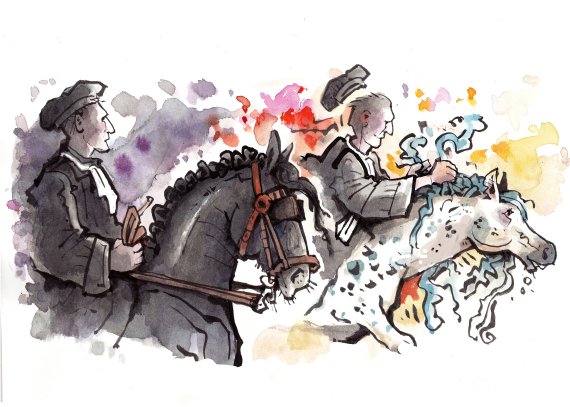Text: Tessa Louwerens and Albert Sikkema

Caroline Labrie
Researcher in the Greenhouse Horticulture business unit at Wageningen Plant Research in Bleiswijk
‘Nice that this is in the strategic plan. I already get a lot of freedom from my boss and I appreciate that enormously. I feel like a kind of entrepreneur within WUR. I am free to choose the subjects I do acquisition for, and if there are fewer research assignments one year I am not penalized for that. Because of that freedom, I am more motivated and that makes you do the acquisition better. I am also allowed to experiment with new business models, after I have consulted people who know a lot about them: brilliant. I occasionally come across people in WUR who are not so motivated to collaborate because they are operating in a tight research market and they want to keep their research assignments to themselves. Those people might have a need for more space so they can collaborate more in the spirit of One Wageningen. That pays off in the long term. I am glad this is getting more attention within WUR.’

Jasper Lamers
PhD candidate in the Laboratory for Plant Physiology
‘I have asked around a bit among other PhD candidates in my group and the conclusion is that we have both too little and too much freedom. With growing student numbers, the chair group has a bigger teaching load, and PhD candidates are being drummed up to do more teaching. Of course, that’s all part of my job, but it does reduce my freedom to decide how I use my time. But I don’t think we should be given any more freedom in our PhD research. We already have to find our own way. Which articles should we read? Which way should we go with our experiments? What have other people discovered previously? We have plenty of scope and I would sooner have more guidance than more freedom.’
PhD candidates would rather have more guidance

Thomas Lans
Lecturer in Education
‘I think WUR can create more space for enterprising and creative behaviour by staff. It starts right from your induction period and the professionalization programmes, in which it is not yet systematically integrated. Heads should appreciate their staff’s ‘hobby projects’ more; at present these are usually carried out in their spare time. This provides an outlet for people to use their creativity in other areas than their work, and it can lead to new insights that are useful in your work as well. I compare it with cooking: you can stick to a recipe, or you can make something with whatever you have in the fridge. WUR tends to stick to the recipe. If you want to stimulate enterprising behaviour, it’s good to highlight some inspiring, enterprising role models. They are quite hard to find now. But the organization can only become more creative if there’s a bit of slack along the line, so you need to make space for that first.’
Kees Laban
Information officer in the Forum Library
‘I work in the front office in the Forum Library. People come to me with questions about books or problems with the database. I also manage the library, and I walk around it a lot. I am actually very free in my job, which is fairly independent as well. If I really want to do something, my colleagues and my boss help me think it through, so I don’t experience many hindrances. To be honest, I think the ideas about changing the corporate culture and giving staff more space won’t affect the way I work, and I don’t feel I need more space or freedom.’

Bertus van der Laan
Greenhouse Manager at Unifarm
‘As a Greenhouse Manager, I lead nine people. I get enough freedom from my boss and I try and pass it on to my staff too. The first time there is contact with researchers wanting to do experiments in the greenhouse, I go along, but after that I let my staff communicate directly with the implementing party. I like to be kept informed, but if I always stick my nose into everything I’ll become a nuisance. Also, I know my staff and their strong and weak points. I estimate in each individual case whether a member of staff can handle the responsibility. And if someone has a problem, they can always come to me. Of course, deadlines have to be met, so if there’s a danger of that going wrong, I step in. I don’t know how that goes in other departments, but within Unifarm this is fairly standard procedure. And I don’t think there’s any need to change that.’
Inge Lamers
HR staff member at Facilities and Services
‘As a Greenhouse Manager, I lead nine people. I get enough freedom from my boss and I try and pass it on to my staff too. The first time there is contact with researchers wanting to do experiments in the greenhouse, I go along, but after that I let my staff communicate directly with the implementing party. I like to be kept informed, but if I always stick my nose into everything I’ll become a nuisance. Also, I know my staff and their strong and weak points. I estimate in each individual case whether a member of staff can handle the responsibility. And if someone has a problem, they can always come to me. Of course, deadlines have to be met, so if there’s a danger of that going wrong, I step in. I don’t know how that goes in other departments, but within Unifarm this is fairly standard procedure. And I don’t think there’s any need to change that.’

 Illustration: Henk van Ruitenbeek
Illustration: Henk van Ruitenbeek